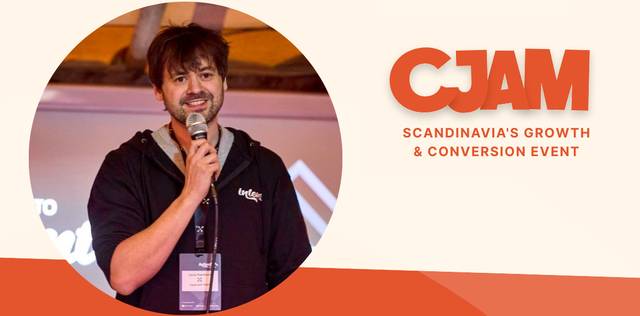
David, tell me more about you – how did you end up doing what you're doing today?
Sure! I’ve spent about a decade in conversion optimization, founded a consultancy and wrote the book The Person in Personalization.
I’ve always been fascinated by how measurement shapes behavior—changing what we measure can completely change outcomes, both for businesses and customers.
What is your talk about?
The title of my talk is You Are What You Measure. I use examples from Disney, education, politics, and of course, conversion rate optimization, to show how the way we measure success directly influences our behavior as brands.
It’s all about how measurement shapes optimization, and how that, in turn, affects the experiences we create for our audiences. I promise it all ties together!
What’s the key message that you want to get across?
The key message is that we need to measure in ways that truly reflect what we want to achieve as businesses—and what our users’ end goals are.
Measurement shouldn’t just be a one-way street where we define success by the number of conversions. That doesn’t tell us if people enjoyed the process or if they’ll come back. Instead, we should focus on long-term metrics like retention and customer lifetime value, and measure in ways that are more appropriate to the end user.
Why is it important?
I think it’s really important because we live in a world that’s become very focused on short-term gains and revenue growth, often at the expense of purpose and the people we’re actually serving.
When companies measure success purely by revenue, they end up making decisions that aren’t always in the best interest of their customers. If we want to create better experiences and build lasting relationships, we need to shift our focus to more meaningful measures of success.
What are common pitfalls?
A common pitfall is that companies tend to measure what’s quick, easy, and attributable—things like clicks and immediate purchases—because they’re under pressure to show short-term growth. This leads to optimizing for the wrong things, like conversion rate at all costs, rather than for what actually matters to the customer.
It’s easier to measure short-term wins than long-term value, so that’s where most companies focus, but it’s not always the right thing to do.
What should people do instead?
People should measure what really matters—metrics that are purposeful and aligned with what the customer actually wants.
Your customer’s goals should be your business goals. If you’re only focused on transactional, one-way communication (“Buy now! 10% off!”), it feels desperate and disconnected. Instead, understand where your customer is in their journey and tailor your messaging and measurement to their needs. That way, you’re building a relationship, not just chasing a quick sale.
What is the future of CRO according to you?
For years, people have said we shouldn’t call it “conversion rate optimization” because optimizing for conversion rate alone leads to manipulative, one-way tactics. If we saw CRO as a process, not just a target or event, we’d be in a much better place.
The future, I think, will be shaped by increased competition and the rise of AI—people will spend less time on websites, so brands will need to stand out not just in what they offer, but in how they measure and deliver value.
I believe we’ll see a shift toward aligning business goals with customer goals, focusing on long-term relationships rather than just short-term revenue. It won’t be easy—changing entrenched ways of working never is—but as generations and technologies change, I think we’ll get there. Ultimately, personalization and CRO should be about care, authenticity, and meeting real needs—not just driving up numbers.
Don’t miss David's session at CJAM 2025 on October 23rd!
Seats are limited and going fast, secure your ticket today to be part of the event.